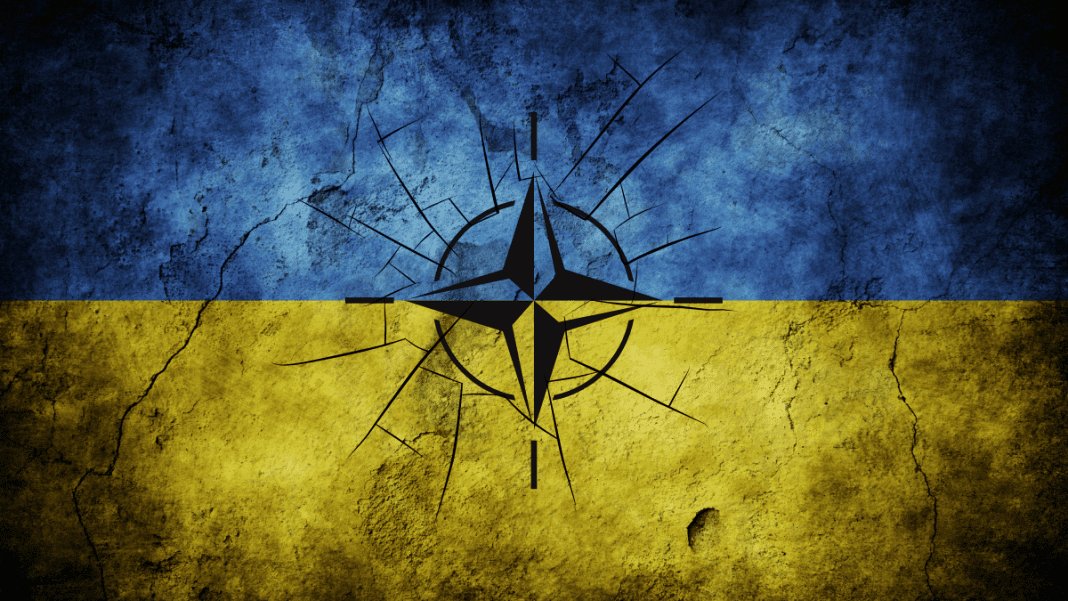Ukraine’s dream of gaining NATO membership is facing one of its toughest moments yet. Once a goal supported by many Western allies, the idea of Ukraine becoming a NATO member now appears to be losing steam. Discussions with NATO countries have stalled. A Ukrainian official even went as far as calling the talks “toxic,” signaling how strained the situation has become.
Support for NATO Membership Fades as Talks Hit a Wall
Not long ago, Ukraine had strong backing from countries like the United States and several European nations. But recent meetings and diplomatic conversations suggest a shift in attitude. NATO summits, which used to highlight Ukraine’s potential membership, are now quiet on the issue. Leaders have been less vocal, and many have stopped mentioning Ukraine’s NATO path altogether.
The talks have not led to any progress. Instead, there is no clear timeline, no written commitments, and no active steps toward making Ukraine a NATO member. This silence is causing growing concern inside Ukraine’s government and military circles.
Arctic Arsenal Expands: Russia Builds 50+ Missile Storage Bunkers Near NATO Airspace
Officials fear that the longer the delay, the less likely NATO membership will happen. With each passing summit and every stalled discussion, the door appears to be closing.
NATO Membership Delayed by Fear of Russia’s Reaction
One of the main reasons behind this change is the fear of how Russia might react. NATO countries are becoming increasingly cautious about taking steps that could provoke Moscow. Since the beginning of the Ukraine-Russia conflict in 2014 and the full-scale invasion in 2022, the question of Ukraine joining NATO has become a highly sensitive issue.
Countries such as Germany and France have expressed concerns about escalating tensions with Russia. Some believe that inviting Ukraine into NATO could be seen as a direct threat by Russia, potentially leading to more instability in the region.
This fear has led to hesitation among NATO members. Some have openly said that now is not the right time to talk about expansion. Instead, they want to focus on helping Ukraine in other ways, like sending weapons and financial aid.
Bipartisan Blitz! U.S. Senators Demand 500% Tariff to Cripple Russia’s War Machine
Even high-profile politicians, including former U.S. President Donald Trump, have criticized the idea of Ukraine’s NATO membership. Trump’s comments have added to the doubts and caused more division among NATO members.
There is also the issue of military standards. NATO expects its members to meet certain defense and democratic requirements. While Ukraine has made progress, the ongoing war and political instability make it hard to meet those expectations.
Ukraine’s Frustration Grows as Silence Deepens
Inside Ukraine, the mood is shifting from hope to frustration. Ukrainian leaders have worked hard to show their commitment to NATO values. They have restructured parts of their military, aligned some laws with NATO standards, and remained open to cooperation with alliance members.
But now, they feel left out of the conversation. Several officials say they no longer receive clear answers or direct responses from Western leaders about NATO membership. The use of the word “toxic” by one Ukrainian official shows how deep the frustration runs.
At recent NATO meetings, other global issues have taken the spotlight. Climate change, security in the Indo-Pacific region, and defense spending among NATO nations are now the top concerns. Ukraine’s request has slipped down the list, even though the war is far from over.
NATO’s F-16 Gamble Strengthens Ukraine, Provoking Russia
Some Ukrainian politicians have stated that this silence is more damaging than an outright refusal. They feel that the lack of communication leaves them in a grey area — not inside NATO, but also not being told they’re out for good.
This uncertainty affects not just politics, but also the morale of soldiers and citizens who had pinned their hopes on joining the alliance. Without a clear path forward, Ukraine is left wondering where it stands and what future support it can truly count on.

